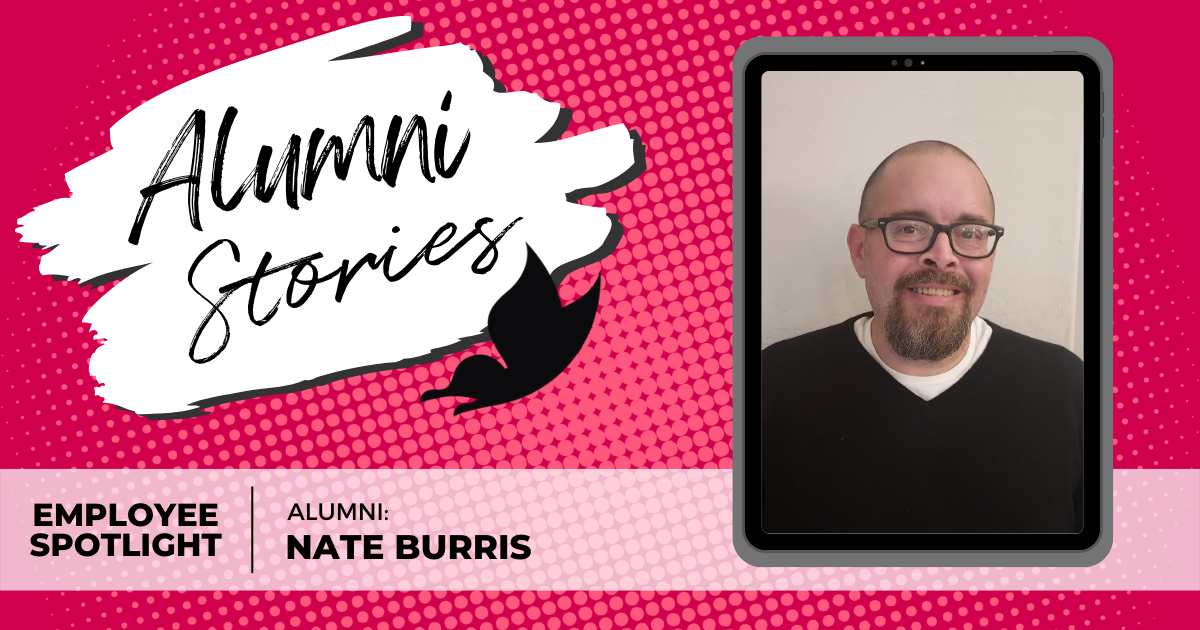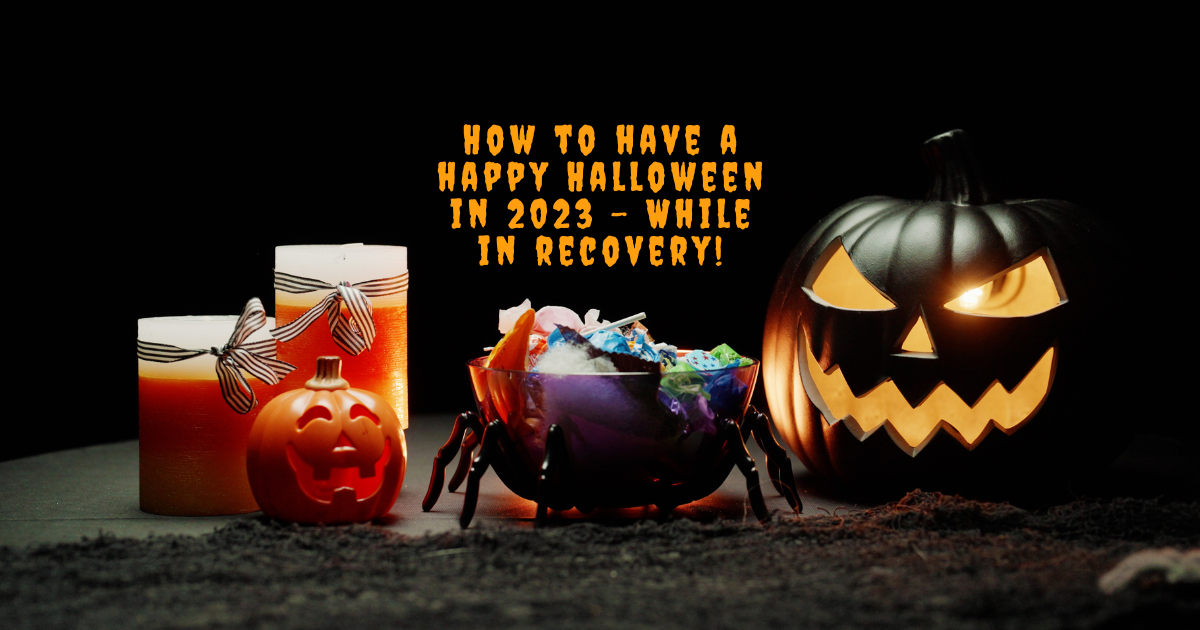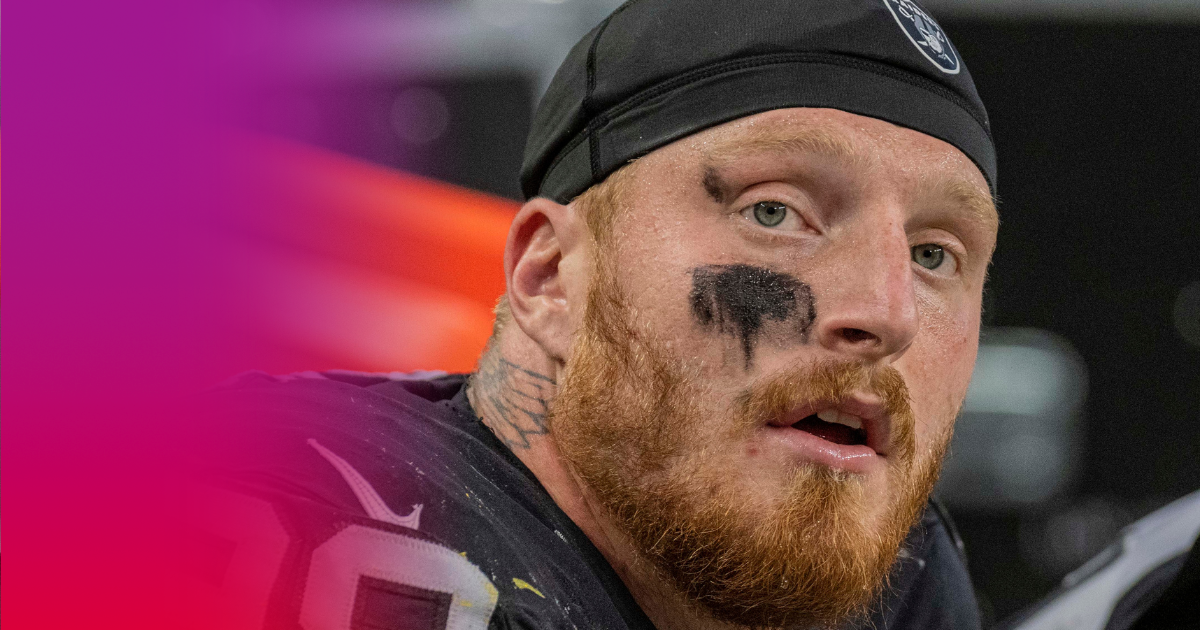A life is never beyond fixing, and no one understands that better than Nate Burris. His story is a classic profile of recovery. Having suffered childhood trauma, the death of close family members, a failed marriage, and alcohol use disorder, Burris gained control over his addiction. His story is equal parts rough and inspiring. Burris is a clear testament to the restorative power of recovery.
“It’s kind of hard to know where to start the story,” Burris said. “I’ve listened to a lot of people tell their story. There are so many different varying degrees of mess that we leave behind us. Alcoholism is something I’ve been around ever since I can remember.”
Finding Pride in Recovery from Addiction
Burris, 48, is incredibly proud of the progress he’s made. He shared an example of how the emotional tools he’s gained through treatment at Landmark Recovery of Oklahoma City has helped shift his mindset around how he responds to adverse situations in life.
“This week, [nine months after my rehab graduation,] I’m having one of those nasty weeks that I haven’t had in a long time,” Burris said. “But I can sit here talking to you right now and I can’t think of anything that I’ve had to drink over. Today, my wife and I are doing better than we’ve ever done using the communication and self-reflection skills I learned. She also has ten months of sobriety, now, too.”
Sobriety feels good to Burris. He described how recovery allows him to look in the mirror every day and not hate the person that’s looking back. He feels stronger than he has in 30 years because of the changes he’s made. His therapist and the resources he’s gained through Landmark Recovery have allowed him to maintain his sobriety for the past nine months. He understands that if he ever has a setback again, there are people ready to help.
“I really feel like Landmark Recovery helped me get my life back,” Burris said.
Childhood Alcoholism Exposure
Burris grew up watching his father excessively drink alcohol. He recalls seeing his dad get drunk and stumble around the house out of control and getting into embarrassing situations.
“It was tough to see those things as a kid, you know, to see your father pissing in the refrigerator or in the oven,” Burris said.
His father ended up going to a nearby Veterans Administration rehab center. After a month in the center’s alcohol ward, his dad began stealing prescription drugs, leading to an additional two months’ stay. Seeing his father in the hospital left a long-lasting impression on Burris.
“Visiting your dad in the V.A. psych ward is rough,” he said “It’s an experience you won’t forget.”
While his father was in rehab, Burris, who was 13 at the time, had to get a job to help pay the bills. Working as an evening shift janitor, he was forced to grow up fast to help provide for his family and fill a gap that his father couldn’t fill.
“I was still expected to get perfect grades during the school day because I’ve got potential,” he said. “I also had to satisfy the high demands of what the Jehovah’s Witnesses expected – meeting three times a week and knocking on doors on the weekends or all summer long.”
Things were getting increasingly claustrophobic for Burris as he sought a way out of the nightmare his life was becoming. For a child, this was no way to live, but kids eventually find a way to cope, no matter if the coping method is good or bad. Burris’s coping strategy became alcohol.
“For some reason, I thought picking up a drink would be a good idea once upon a time,” Burris said. “I was probably 15 years old when I took my first drink. I went ahead and got drunk the first time. I was probably drunk every single time after that.”
Dealing With Religious Trauma
Burris said he experienced a lot of religious trepidation during his formative years. Much of that religious anxiety stemmed from the fact that the Jehovah’s Witness church he attended was very tight-knit and controlling of their congregation.
“That really got me to where me and God couldn’t get along. It was so strict, just nothing,” he said. “There’s just no freedom to be anything other than what you were being told to be. Perfection was required and unattainable—all at the same time—with lots of consequences.”
If you stepped out of line in a way that the Jehovah’s Witnesses deemed immoral or just plain wrong, you were disfellowshipped and kicked to the curb, literally and spiritually. Burris was kicked out of the congregation and felt spiritually adrift.
“I decided that if they didn’t want me, then I didn’t want to be one of the Jehovah’s Witnesses,” he said. “They’ll disfellowship you, and then your own family can’t even talk to you anymore. My mom chose religion over me anyway, so there were lots of reasons to drink, lots of excuses.”
Because of his eventual disfellowshipping, Burris’s mother and the rest of his family recoiled from him, leaving him in social isolation.
Alcohol and Drug Abuse At Work
Once he fell out with his family, Burris began to work in the restaurant industry, which fueled his addictions to even greater heights. Burris found a job as a bartender, and in that line of work never had to worry about his personal drug and alcohol supply ever again.
“Man, I fell in love with that,” he said. “I was so good. It also gave me an excuse to use drugs and easy access to alcohol and any other extracurricular thing that came through the restaurant. You know, like cocaine and crank.”
Dealing With Alcohol and Drug Abuse in a Marriage
Burris was less and less fulfilled by his addictions and left looking for more of the rush. For many years after he began as a bartender, Burris found himself adrift in excess. At 25 he got married. His marriage was rough, but he made an attempt at living right to prove his mother wrong. He was also using his marriage as a way of distracting himself from drug and alcohol problems. Despite his efforts at getting his life back on track, nothing could hold him down.
“I was trying desperately to do something to get my mom’s attention,” he said. “I wanted to show her I was living right and doing good, even though I wasn’t going to her church. It just didn’t work. It’s absolutely the wrong reason to get into a marriage, you know?”
His marriage began to unravel as he spent the next seven years abusing drugs and alcohol. At the time, Burris didn’t see it, but now realizes he was following his father’s path and becoming a person he didn’t want to be. During this time, he also became the father to two children.
“If I got a notion or some spontaneous idea, drugs would appear,” he said. “I spent all those years saying that I wasn’t going to be like my dad, right? But I spent all that first marriage acting like that. I was just demolishing my idea of God, too. There’s a lot from that time that’s relevant to the fourth Alcoholics Anonymous step for me–a lot.”
Functional Alcoholism
Burris later met his second wife in the midst of his first marriage falling apart. Eventually he left her for his now-wife, who he’s been with for just over 14 years this month. The guilt from his first marriage falling apart caused him to dive back into the bottle. His first wife moved back to Memphis, Tennessee with his kids.
“It felt like I had screwed everything up,” he said. “My second wife started drinking with me around this time.”
Burris hadn’t quite come to the realization that he had an alcohol use disorder and was in need of help yet. Life was calming down once again, though, and he was settling into a period of being a self-described functional alcoholic. He began working as a bank manager at the Bank of Oklahoma and was doing well in the corporate world. He used the money he made there to get his wife through P.A. school and continued drinking.
“When she graduated from PA school, we ended up having kids,” he said. “I honestly don’t remember all the circumstances, but I ended up being a stay at home dad for a few years, and that kicked my depression up a notch,” he said. “I was so used to working that it triggered more drinking for me.”
Losing a Close Family Member
Six years ago, Burris lost his younger brother Jesse, 17 years his junior, to a heroin overdose. Both were musicians who bonded over their shared affinity for playing the guitar.
“Our relationship was always a little weird because I moved out of the house when he was two years old,” he said. “I wasn’t around him much after I moved out. My brother was 15 when our dad died.”
Around this time, Jesse was getting into stuff the Jehovah’s Witnesses disapproved of and so they disfellowshipped him, too, even though they were a vital line of support during the trying time after their father passed away.
“At 15, suddenly, he’s shunned from church when he needs the support the most,” he said.
Burris’s younger brother began developing a substance use disorder after this.
“After my dad died, we would hang out and get to know each other better,” he said. “My favorite person to ever play guitar with was my brother—just two completely different styles. But he’s struggling in his own way. Alcohol is my thing at this point in my life and my brother was using meth and heroin.”
The cracks were developing in his younger brother’s life. His habits would come to a head one night when he was fired from his job.
“He was supposed to come over one night, [but I called him to cancel because I was tired],” he said. “And he’s like ‘yeah, we can do that, but I just want to let you know I got fired.’ We made plans for us to have lunch the next day so we could figure out what to do next. He killed himself that night with an overdose of heroin.”
Depression Fuels an Alcohol Use Disorder
The loss of his brother was devastating to him, and it led to him lashing out through alcoholism like never before. He began a period of very heavy drinking that lasted for years. His drinking habit would land him in and out of the hospital and into all kinds of trouble.
“I would drink myself into the hospital again and again or into a detox center,” he said.
Even though he was deep in a rut, Burris would come to the realization that he had a problem. He would drink himself into hallucinations from the alcohol many nights, but one night was different, causing him to reach out to a rehab center.
“In Alcoholics Anonymous, they say that the reason we believe in God is because we’ve met the devil,” he said. “Well, I remember meeting him one night and I was desperate. I reached out to a rehab.”
Coming to Landmark Recovery
Burris reached out to a rehab in Miami, Florida where he managed to achieve between 45 and 60 days of sobriety. By the time he finished that first full rehab stint, his wife was ready to move on without him. Their paths seemed like they were diverging for a time.
“My wife told me, ‘I’m going to go pick out a house. I’m going to go have one built. I’m going to go pick it out and it’s only going to have my name on it,’” he said.
Despite this personal setback, Burris decided to continue focusing on his rehab efforts and went to a sober living house as part of an ultimatum his wife gave him. He didn’t last very long there before he returned home to continue his destructive behavior. In the succeeding months, he dealt with one of his kids from his first marriage coming and going during that time. With his son coming to live with him, he knew he needed to sober up. He picked up the phone and found himself at Landmark Recovery for the first time.
“I was adamant that I was only going to stay for a 10-day detox, and I did,” he said. “I ended up getting almost three months of sobriety out of my detox stay. Then the ‘Big Blow-Up’ happened on Halloween in 2020.”
“We Admitted We Were Powerless Over Alcohol”
On Halloween night in 2020, Burris succumbed to his alcohol use disorder and relapsed. He made several unfortunate decisions and blacked out.
“I don’t remember everything I did that night,” he said. “I should’ve known that when I woke up the next morning that everybody would be gone.”
With everyone in the house gone, he needed to fill the space with something, so he drove to the nearest liquor store and loaded up the car with as much alcohol as he could get to drink for five days.
“On that fifth day, I was going to take my life,” he said.
Amid a crisis, things can happen that stick with you for the rest of your life—small, unexpected details in your memories that mean the world. For Burris, the thing that he remembers before light came beaming through the darkness was the sound of his home security alarm going off.
“I was going to take all the pills I had,” he said. “My wife, who hadn’t been back to the house in five days, shows up. I have my alarm set, so it goes off. I’m not drunk enough to take the pills yet. She shows up and the alarm goes off. She says, ‘Do you need to go back to Landmark?’ And I said, crying, ‘I don’t want to die!’”
His wife called Landmark for him to tell them that he needed detox. Burris was adamant that would stay for a full month to tackle his disorder. He ended up staying the entire time, but it was hard because he also received news from his wife that he couldn’t go back home for the foreseeable future at that time.
“I did my time at Landmark and it was really good,” he said. “I loved the counselors. I had a therapist at that time that talked to me differently than anybody else talks to call me out on my bullsh-t.”
Once he finished his second stint at Landmark Recovery, he went to live in a sober living house while he straightened out his life. But once again, he relapsed. His reaction to the relapse was different this time, though. Burris knew that he had to go back this time instead of spiral. He immediately put himself back into Landmark and requested the same therapist.
Therapy Helps Click Things Into Place
Everything changed for Burris during this stay. He had the same therapist, and they continued the excavation work they had begun the first time he went to Landmark. There was a particular therapy session this time where his therapist asked him something that he realized he needed to hear.
“I don’t remember exactly how it went, but she asked me the question along the lines of ‘what was my part in all that?” he said. “I’ve been asked that in other situations, but never [in this context].”
Burris spent almost a week after that walking the hallways, thinking. People were concerned with him as he walked around, lost in contemplation. It had opened up a part of him that he’d never known was there.
“Suddenly,” he said, “I could look backwards and I realized that I was the common denominator in every story.”
Burris had also been working through the 12 steps during his time at Landmark as part of his therapy. The 12 steps are essential to programs like Alcoholics Anonymous, which has worked for many people. For Burris, they worked in a way that helped him later fully achieve recovery.
“To quit drinking, I had to dig down into the ugly stuff,” he said. “It also clicks for me that all these recovery programs focus on these 12 steps—the same 12 steps. What’s going on in those 12 steps? It’s all about honesty, open mindedness, and willingness in those steps.”
Demolishing the Past and Paving the Future Through Recovery
After decades of being adrift emotionally, then feeding that pain into an alcohol use disorder that was eating his life away, Burris had finally found the thing that he needed to tackle. Filling a God-shaped hole with drinks and drugs had only gotten him so far. This was all a dead-end for him. But now that he’d figured out his jump-off point for accomplishing the 12 steps, things began to be clear and he was accomplishing goals he thought he’d never get to do.
Burris says that he’s still working at learning to have different reactions and behaviors to problems and obstacles in life. At Landmark, this is considered part of dialectical behavioral therapy (DBT). DBT helps patients cope with the pain of the past so they can move past it and accomplish the things they want in life. He admits he isn’t perfect, but things are much easier to change than they ever have been. All considered, his life is much more different than it once was.

Landmark Recovery of Oklahoma City
Burris has some advice for the folks who choose the Alcoholics Anonymous route, which he touts as the approach that worked best for him: “For anybody [listening or reading], what I would tell them is to get humble in a hurry. My sponsor likes to introduce himself at A.A. meetings by saying ‘I am wrong until further notice’ instead of ‘I am an alcoholic.’”
His faith has also waxed as a result of turning his life back around. He credits his strengthened faith as a big part of the encouragement he received to continue on the path toward recovery.
“I realize God never left and that He kept me alive,” he said. “Everything worked out. It was at Landmark where I heard God speak for the first time in 30 years. It was at Landmark where I forgave myself. It was at Landmark where [I learned how to be] sober–now I’ve been nine months sober!”
Burris says that his relationship with his family is one of the most tangible improvements since he achieved recovery. His wife, despite being hurt by his actions, stuck with him through his journey. His family feels like a cohesive unit again and he’s full of joy over the fact that he can spend meaningful time around his children.
The End is Only the Beginning
“Today, to be able to sit here and have conversations with my wife, where we’re honest and we communicate, is amazing,” he said. “We’re both very self-aware. Oh my God, my kids want to be around me. I have four kids and I get to do something different with them every day. They play guitar, they play sports, they’re artists. And I get to do all these things with them now.”
Peace and serenity, for him, were the common thread through the therapy and lessons he’s been through since rehab. Without those two aspects, he wouldn’t have been able to come to terms with who he’s been, who he is, and who he wants to become. With those two aspects, he now has a future.
“That’s all I was missing this whole time,” he said. “The only way to find it was to get right with myself, you know, to balance and start working on the inside. I have a future now. When you put it like that, it makes me tear up a little bit. I actually never thought I was going to be able to get to this point.”
The journey for Burris has just begun.
“I’m glad that I’m still humble enough at this point to know that we’re just getting started,” he said. “There’s a lot more dirty work to do. I wouldn’t have been able to do that without Landmark Recovery.”
Learn More
To learn more about how Landmark Recovery of Oklahoma City can help you, call (405) 265-8477 to speak to a Patient Navigator about our admissions and treatment process. We’re proud to serve the state of Oklahoma and greater Oklahoma City. Our mission is to save a million lives by the end of the century, starting with those in our very own backyard. We aim to provide the absolute best treatment we can to everyone who walks through our doors.

Choose Recovery Over Addiction
We're here 24/7 to help you get the care you need to live life on your terms, without drugs or alcohol. Talk to our recovery specialists today and learn about our integrated treatment programs.




